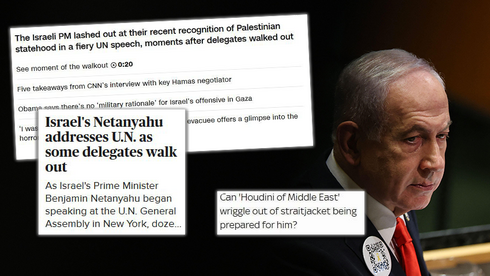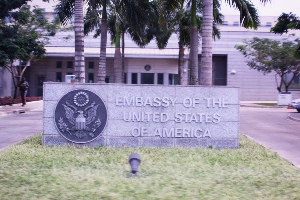Copyright ynetnews

The day after Prime Minister Benjamin Netanyahu addressed the UN General Assembly, international media outlets continued to dissect his remarks — and in many cases, to emphasize the moment when dozens of diplomats stood up and walked out of the hall as he began to speak. Across television, print and online platforms, the focus was as much on symbolism as substance, with headlines invoking terms like “Houdini of the Middle East” and “crisis” to describe the Israeli leader’s speech and the atmosphere surrounding it. On CNN, Netanyahu’s address once again claimed the lead headline Saturday morning, but the coverage was dominated by video footage of representatives leaving the hall in protest. The report pointed out that the prime minister promised to “finish the job” of eliminating Hamas in Gaza, yet the visual of departing envoys overshadowed the substance of his message. Britain’s Sky News adopted a more analytical tone, dubbing Netanyahu the “Houdini of the Middle East” and asking whether he could escape what they called his most formidable political challenge. Their report argued that although Netanyahu has long been known for surviving impossible political situations, the Gaza war may prove different. According to Sky, Arab leaders who recently met with him warned that his diplomatic achievements, including the Abraham Accords, could collapse if the war continues. The analysis also suggested that Donald Trump’s proposed plan for Gaza does not align with Netanyahu’s position or with that of his far-right partners, whose backing is critical to the survival of his coalition. Sky added that Netanyahu’s instincts remain driven by political survival. The report suggested that an early end to the war could accelerate the unraveling of his government and force him to face questions about his responsibility for the failures surrounding the Hamas attack of October 7. CBS News took a starkly different approach, giving the headline “Crisis in the Middle East” prominent placement on its homepage. Their coverage combined Netanyahu’s speech with a separate report on Microsoft’s decision to cut off Unit 8200 — Israel’s elite signals intelligence unit — from access to some of its technologies. In its analysis, CBS criticized what it called Netanyahu’s “defiant speech” in the face of mounting international isolation due to his refusal to halt what they described as a destructive war in Gaza. They noted that his remarks were delivered after dozens of representatives had exited the room, leaving only a few delegations from major powers, including the United States and Britain. Even those countries, CBS reported, did not send their top officials or ambassadors to the hall, leaving mostly junior diplomats in the seats. Other leading outlets also gave the walkout top billing. The New York Times said Netanyahu “delivered a defiant address after dozens walked out,” adding details about anti-Netanyahu protests outside the UN headquarters and the barcode affixed to his suit jacket, which critics linked to a protest website. The Guardian paired its coverage with a looping video clip showing the moment the ambassadors left, while stressing Netanyahu’s vow to “finish the job” against Hamas. The Daily Mail did not feature the speech as prominently on its homepage but highlighted the walkout alongside Netanyahu’s remark that recognition of Palestine by Western countries proved that “killing Jews pays.” Arab-language media echoed the same themes. Lebanon’s Hezbollah-affiliated al-Manar referred to Netanyahu’s appearance as a “speech before empty chairs,” while Qatar’s al-Araby al-Jadeed reported that the General Assembly hall was nearly deserted, describing the walkout as a protest against Israel’s policies in Gaza and what it termed “ongoing violence against Palestinians.” That outlet also noted that thousands of demonstrators had gathered outside UN headquarters in New York to oppose the speech, and that Netanyahu had invited allies and supporters inside to provide applause. Saudi-owned Al-Arabiya struck a somewhat more measured tone. Its report described Netanyahu mounting the podium “with a stern face” while delegations left the chamber. The coverage emphasized that his supporters, invited in advance to attend, filled the hall with applause in contrast to the walkout. Taken together, the international coverage the day after Netanyahu’s speech paints a picture of an Israeli leader determined to project defiance, yet overshadowed by the symbolic act of diplomats leaving en masse. Whether framed as a moment of crisis, a test of political survival, or another Houdini-like escape attempt, Netanyahu’s UN address has continued to reverberate worldwide — less for what he said, and more for the dramatic image of empty seats.



